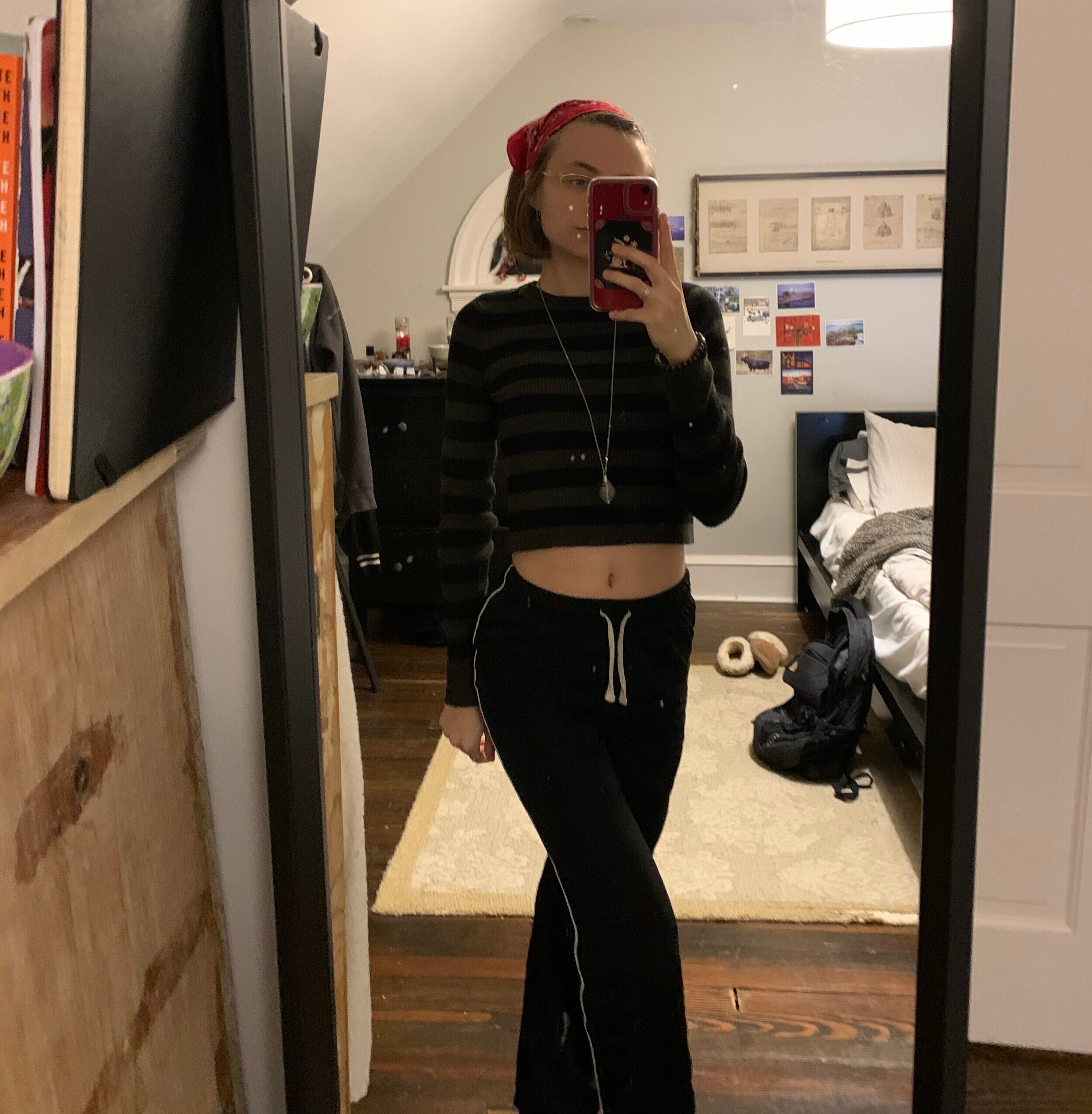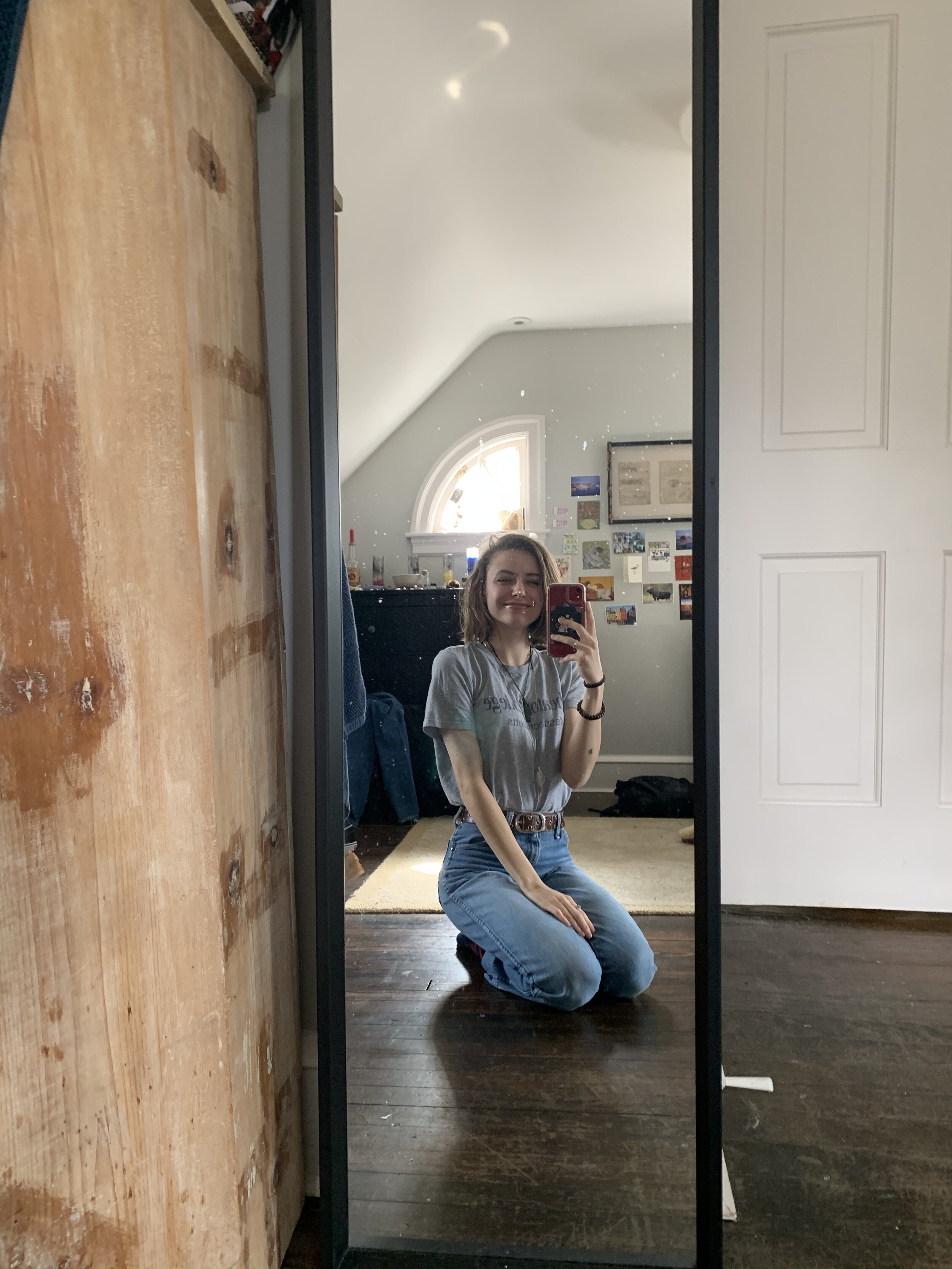Living in a Disabled Body that Doesn’t Look Disabled
Photo by Frankie Castanea
By Frankie Castanea
When discussing rejection, we often think of the little jokes that storm social media about being “friend-zoned” or rejected by a crush. But rarely do we think of that term as a reference to isolation and rejection from society and academia. Rejection is something I deal with on a daily basis as a college student who is chronically ill.
From dealing with comments discussing the legitimacy of my illness (“But you don’t look sick!”) to negotiating attendance policies and accommodations with professors, I realized very early on in my college career that I would have to continuously and ferociously advocate for the legitimacy of my illness and its effects on me.
Photo by Frankie Castanea
I was diagnosed with celiac disease in the first grade and grew up in a household that contained two other gene-positive celiacs. I always had the support and love I needed from my family, who understood that some days were better than others.
Moving away from home and learning to love and be honest with a body that constantly attacks itself is a long process, one that started in freshman year at a small, liberal arts college in Massachusetts and has continued to follow me across state lines and back home to Philadelphia at Temple.
I experience fatigue or just flat out exhaustion, overall muscle and joint pain, migraines, brain fog, and a lieu of health complications besides these when I am in a flare-up. Between working, school, and checking in with my energy levels, I barely have time for the social life that other college students have. I often wake up and have to make a decision between what I can get done that way, and I rarely have enough energy to spend time with the people I care about.
Parties are something foreign to me, mainly because that kind of social interaction will exhaust me for days. With my dietary restrictions, I usually cook my meals at home rather than being on a meal plan and eating in dining halls. This kind of isolation is one that many individuals with autoimmune illnesses face, where the anxiety of running out of energy is palpable and the depression I face knowing that I will battle my own illness and be sick for the rest of my life is very real.
For a long time, I kept to myself and self-isolated. I didn’t advocate for myself, how I was feeling, or my illness. I turned down opportunities to see friends or go out because I was scared that my illness would inconvenience others. Although colleges aim to provide accessible education to disabled bodies, attendance policies and their inherent ableism often put up a barrier to me and my learning. By making it so attendance is mostly mandatory and offering little wiggle room for accommodations, colleges set a precedent that able-bodies will have an easier time succeeding in courses.
Photo by Frankie Castanea
Those with chronic illness, fatigue, pain, or mental health issues are often left in the dust and docked points for missing a course when their body fails them. Not only is this alienating disabled bodies, but it impacts the way those with a disability see themselves: their mental health, their education, and even their self-worth.
In my year at Temple, I have only had one professor who truly wanted me to succeed in my course and who helped me develop an emergency plan for when I was unable to attend class. Without even trying, academia rejects those who are different.
The stigma around disability, especially an invisible disability, continues to be a struggle in my daily life. I often am upfront about my disability as a form of advocacy and have found ways to see positivity within the depression that invisible illness holds on my life.
With the support of friends, my family, and knowing that I have the ability to live a semi-normal life beyond the restrictions of college, I find that the inaccessibility of college and certain aspects of a social life are a little easier to cope with.



